Palestine is not your typical travel destination, by a long shot. Sure, it is rich in history and culture, has delicious cuisine, is religiously diverse, and contains multiple cosmopolitan city centres full of friendly and open people… but it’s also a zone of conflict, which leads many folks to cross it right off the travel bucket list. Although the Israeli-Palestinian conflict is ongoing throughout the region, Palestine is more than just a place of conflict, and there is way more to it than meets the eye. For anyone who is empathetic, ready to learn, and a little bit adventurous, Palestine might just be the perfect travel destination.
In this article, Palestine is defined as the West Bank (including East Jerusalem) and the Gaza Strip. Travel to Gaza is prohibited for most individuals, save for those granted special permission by the Israeli government. However, travel in the West Bank is absolutely doable, and you would be surprised about the wide breadth of places to visit and the experiences to be had in this small sliver of land. Some great destinations to visit in the West Bank include: Ramallah, Bethlehem, East Jerusalem, Nablus, Jericho, Hebron, the Dead Sea, and many others.
 Looking out over Bethlehem, Palestine (image: In Locamotion)
Looking out over Bethlehem, Palestine (image: In Locamotion)
It’s important to note that Palestine is subject to an ongoing military occupation by Israel, meaning that every aspect of life in Palestine is under the control of the Israeli military. Palestine gets a lot of negative press and is presented as a perpetual war zone, but the reality is that life does go on in Palestine, in spite of it being a zone of conflict. Travellers in the West Bank will find metropolises full of people simply living their lives: going to work, falling in love, and trying to provide for their families. Although the occupation is present and greatly impacts the people, it is no reason to fear visiting the region. However, note that traveling in an area experiencing military occupation can be emotional and challenging. It is a good idea to do some studying up about the political situation beforehand, and to ask a lot of questions while on the ground to get a deeper and well-rounded view of the history and the present-day conflict.
Without further ado, here are five reasons why you should visit Palestine:
-
Travel in Palestine is easier than you think
Palestine may not be a conventional travel destination, but don’t let that discourage you! Not only is it easy to get to Palestine, but traveling within the West Bank is absolutely feasible. All major Palestinian cities have hotels and hostels to choose from, for travellers at every budget level. Travel costs in Palestine are relatively cheap compared to neighbouring Israel and Jordan. And there is plenty to see and do throughout the West Bank, so travellers should allot enough time (a few days, at least!) to see the major cities and sites.
You can get to the West Bank by traveling overland from either Israel or Jordan. Entering from Israel is faster and more direct (travellers can catch buses heading to Palestine from Damascus Gate in East Jerusalem). From Jordan, travellers can enter the West Bank via the Allenby Bridge crossing. Within the West Bank, you can get from city to city on public buses, which run throughout the day between all major Palestinian cities. Travellers can also take mini buses called services (which are slightly more expensive but also are more direct), and taxis, which are readily available throughout the West Bank.
A note on travel safety. In spite of the conflict, foreigners should not expect to be targets of violence. When violent clashes do occur, they typically transpire between the Israeli soldiers or settlers and Palestinians, not between foreigners and Palestinians. Violent outbursts often occur at protests, which travellers should generally avoid. Additionally, Palestine is a religiously diverse area where people of many faiths live, but travellers should take note that there tends to be tension between the Palestinians and the Jewish settlers in the West Bank (so Jewish travellers in the West Bank should be aware of any symbols that could confuse them for a settler). Finally, solo travel is more than possible in the West Bank, and solo female travellers should not feel discouraged from traveling in the region. Overall, travellers should take safety into account anywhere they go, but know that travel in Palestine is a rich and rewarding experience and should not be missed because of overblown or biased accounts of danger.
 A section of the separation wall in Bethlehem, Palestine (Image: In Locamotion)
A section of the separation wall in Bethlehem, Palestine (Image: In Locamotion)
-
Palestine has great food and even better desserts
Let’s get hummus and falafel out of the way first. It’s everywhere, and it’s delicious. Don’t be surprised if you end up eating it every day – or even multiple times per day. A falafel pita with vegetable fixings costs about 5 shekels in most places (around £1 or $1.30).
But don’t stop at hummus and falafel! Travellers in Palestine can also try mansaf, a dish made with chicken or lamb over a bed of rice, with an accompanying yogurt-based sauce – delicious. Also, maqluba is a Palestinian classic, with vegetables, meat, rice, and more served together – and upside-down!
To drink, get used to having lots of tea with fresh mint and plenty of sugar. Coffee is also commonplace, and travellers can find carts selling small cups of black coffee throughout Palestinian cities. And for alcohol drinkers, have no fear. Palestine may be a majority Muslim nation, but you can purchase alcohol in most cities (Hebron being the exception). Palestine even has its own brewery, home of the famous Taybeh beer. Time your trip right and you can even make it to Palestine’s own Oktoberfest!
And finally, no trip to Palestine would be complete without some knafeh for dessert. Knafeh is a dessert made from sugar and cheese, typically topped with nuts and honey, and it is quite amazing. The most famous knafeh in the Arab world comes from the city of Nablus, though you can find this sumptuous dessert throughout Palestine and in other countries in the Middle East. If you make it to Nablus, be sure to visit Al-Aqsa Sweets, renowned by Palestinians for having the absolute best knafeh.
 Knafeh – the world famous Palestinian dessert (Image: Palestine on a Plate)
Knafeh – the world famous Palestinian dessert (Image: Palestine on a Plate)
-
Palestine is one of the holiest places in the world
It’s called the Holy Land for a reason. Palestine is home to some of the most important sites in the world for the three Abrahamic religions (Islam, Judaism, and Christianity). The Cave of the Patriarchs, located in the old city of Hebron, is thought to be the burial place of the prophet Abraham, and is a holy place for people of the Jewish and Muslim faiths. The Church of the Nativity in Bethlehem is thought to be the birthplace of Jesus, and thus is an important site for Christians. Jericho is regarded as the setting of the Hebrew Bible/Old Testament’s Battle of Jericho, and is home to a number of important archeological sites in the region.
And of course, no religious journey through Palestine would be complete without a visit to Jerusalem, which is considered to be the holiest city in the world. The Old City in occupied East Jerusalem contains a multitude of important sites for Islam, Judaism, and Christianity. For example, the Church of the Holy Sepulchre, the Western Wall, Al-Aqsa Mosque, Via Dolorosa, Temple Mount, and many others—and that just scratches the surface. For anyone religious, or simply interested in learning about the many religious and historical sites in the region, Palestine is the place to go.
 Al-Aqsa Mosque/Temple Mount in East Jerusalem (Image: Pixabay)
Al-Aqsa Mosque/Temple Mount in East Jerusalem (Image: Pixabay)
-
Palestinian hospitality is very real
Travellers in Palestine should anticipate feeling very welcome during their stay. Palestinians are generally very friendly and warm, so don’t be surprised if after a short conversation someone invites you for a cup of coffee, or over to their home for dinner with their family. Shopkeepers may treat you to a meal, and in about every conversation with a Palestinian you’ll likely hear an “ahlan wa sahlan” at least once… but likely three, four, five times!
The media may portray the region as hostile and anti-foreigner, but experience begs to differ. Many Palestinians are happy to converse with foreigners and share their experiences and perspectives. Enjoy the vast Palestinian hospitality, and take it as an opportunity to build bridges, listen to the lived experiences of the people, and gain a more thorough understanding of Palestinian life and culture.
 Al-Manara Square in Ramallah, Palestine (Image: In Locamotion)
Al-Manara Square in Ramallah, Palestine (Image: In Locamotion)
-
Visiting Palestine allows you to gain a firsthand perspective of the conflict
One important thing to note about travel in Palestine is that it’s impossible to visit without engaging, in some way, with politics. The Israeli occupation touches all aspects of life in Palestine, and every person is shaped by the conflict. The Palestinian people are highly politicised, and everyone with whom you speak will have a unique take on the conflict and the best way to resolve it. Many people are happy to discuss the political situation with travellers, so do not be afraid to ask questions.
Travellers in Palestine have a unique opportunity to form their own opinions about a very contentious issue, through firsthand observations and real-life exposure to the conflict. As you make your way through Palestine and gain a glimpse of what life is like for the people, you will be able to more fully flesh out your own opinions and ideas about the political situation, and perhaps even use this knowledge to be a part of the solution. This is particularly important considering that the information that we receive on the conflict, especially information received from afar, is often biased. Much of the reporting on the conflict comes from outside of Palestine, and governments with a stake in the politics of the region have it in their best interest to present one-sided views of the conflict. Actually visiting Palestine gives us the chance for formulate our own opinions, which can drive education, activism, and hopefully social change.
 Street art seen in Nablus, Palestine (Image: In Locamotion)
Street art seen in Nablus, Palestine (Image: In Locamotion)
 By Alissa Murray
By Alissa Murray
Alissa Murray is a writer, dancer, and activist from New York City. She blogs about the intersection of travel with social justice, sustainability, dance, and more on her website: In Locamotion. Alissa has visited five countries in the MENA region and her favourite thus far is Palestine, due to the many kind people she met there, the Shaami Arabic language immersion, and of course all the delicious knafeh.
If you enjoyed this, you might also like:
Socotra: Conflict and climate threaten Yemen’s “alien” island paradise


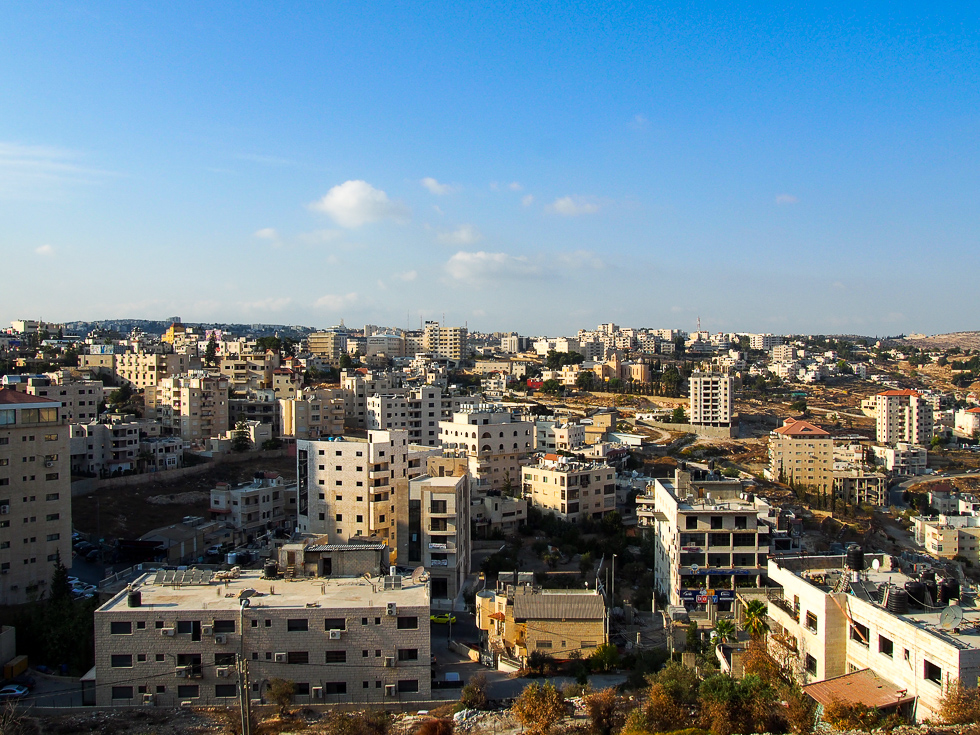 Looking out over Bethlehem, Palestine (image: In Locamotion)
Looking out over Bethlehem, Palestine (image: In Locamotion)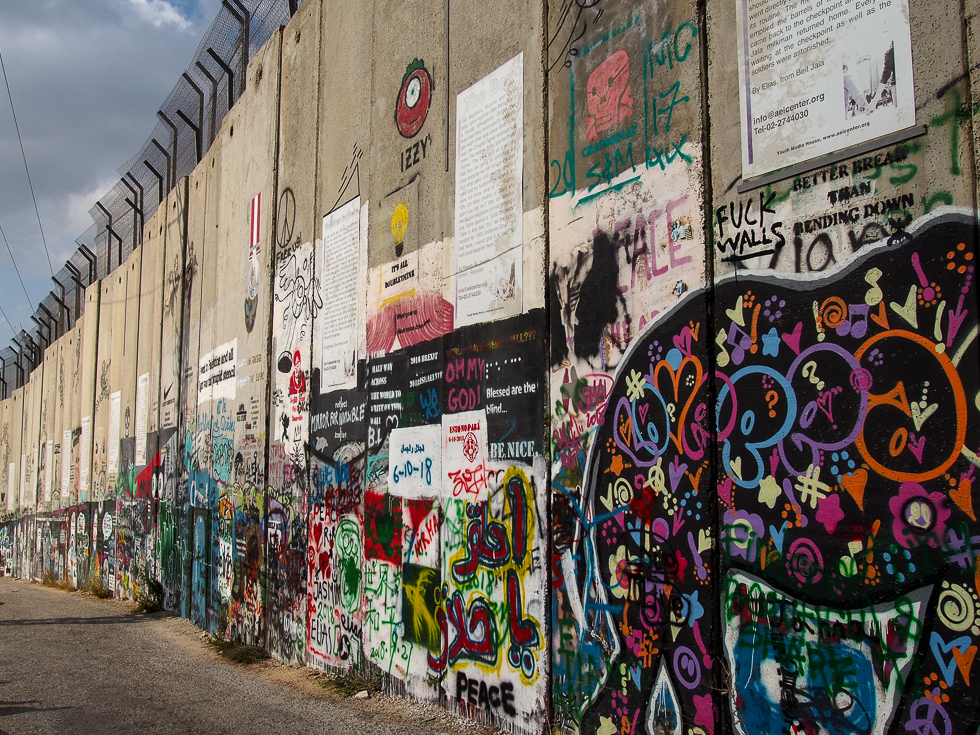 A section of the separation wall in Bethlehem, Palestine (Image: In Locamotion)
A section of the separation wall in Bethlehem, Palestine (Image: In Locamotion)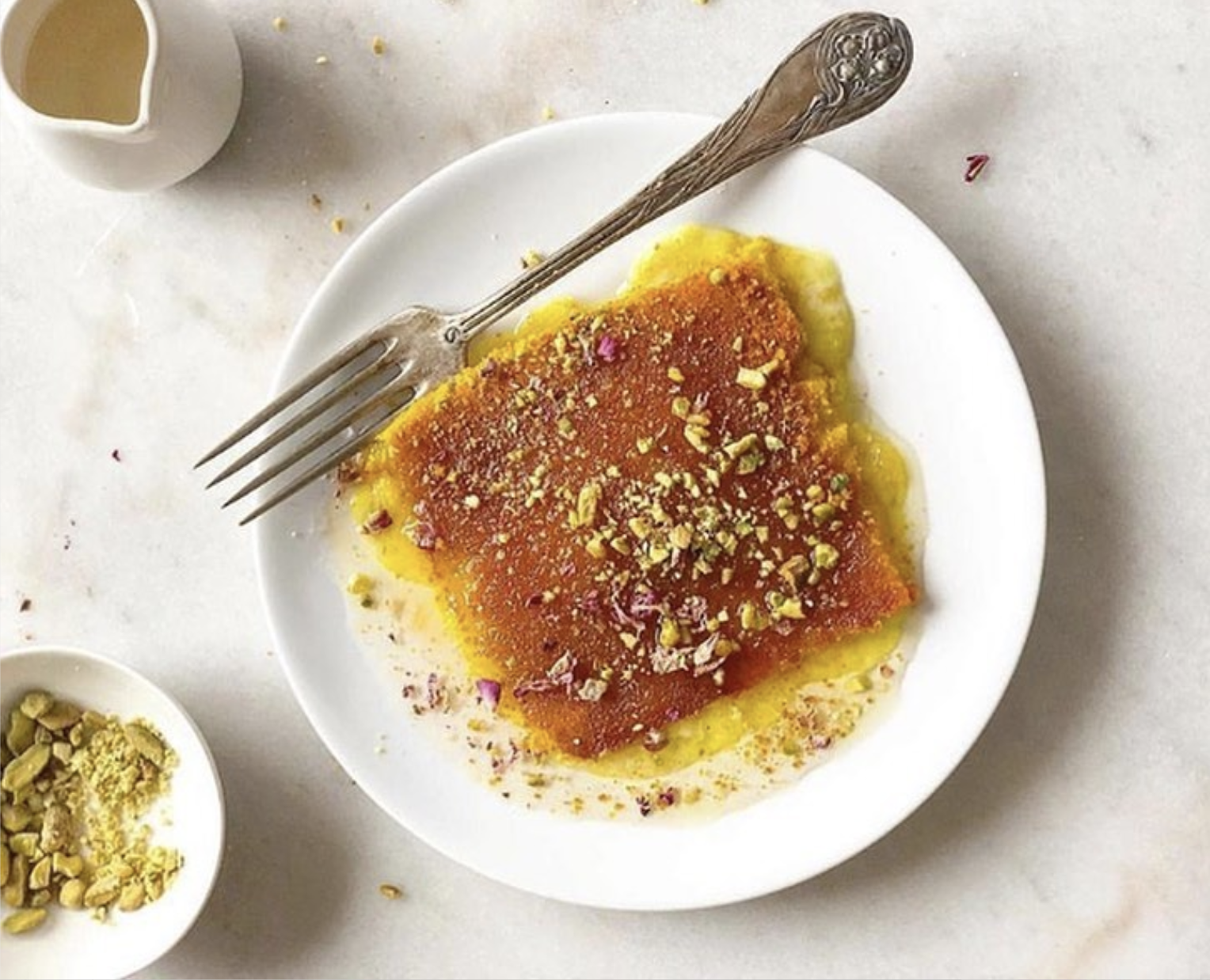 Knafeh – the world famous Palestinian dessert (Image:
Knafeh – the world famous Palestinian dessert (Image:  Al-Aqsa Mosque/Temple Mount in East Jerusalem (Image: Pixabay)
Al-Aqsa Mosque/Temple Mount in East Jerusalem (Image: Pixabay)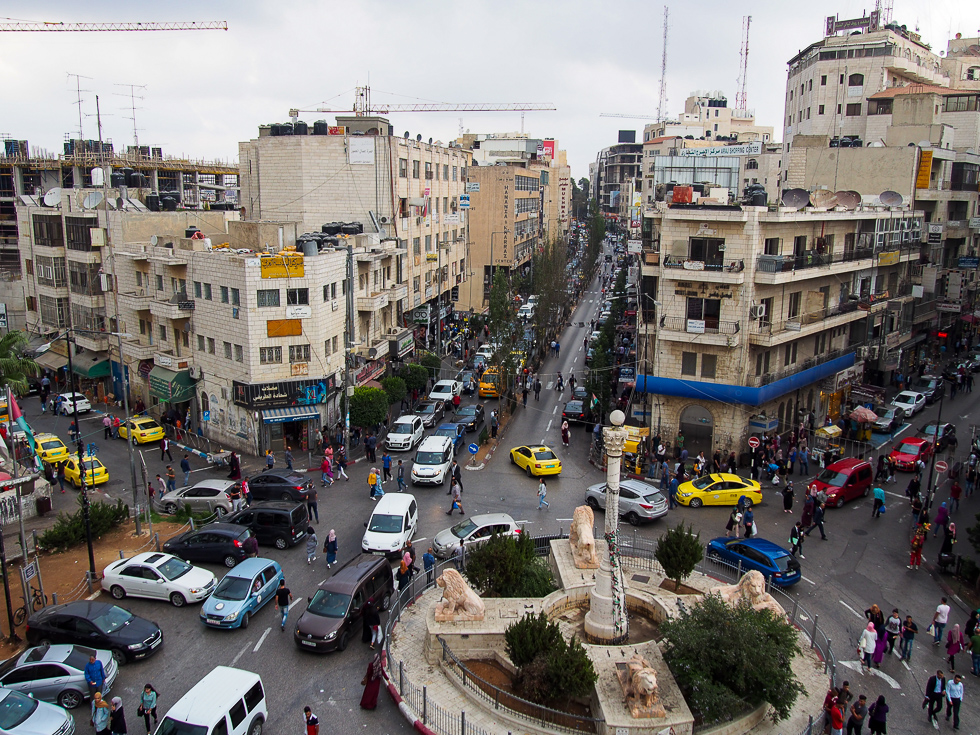 Al-Manara Square in Ramallah, Palestine (Image: In Locamotion)
Al-Manara Square in Ramallah, Palestine (Image: In Locamotion)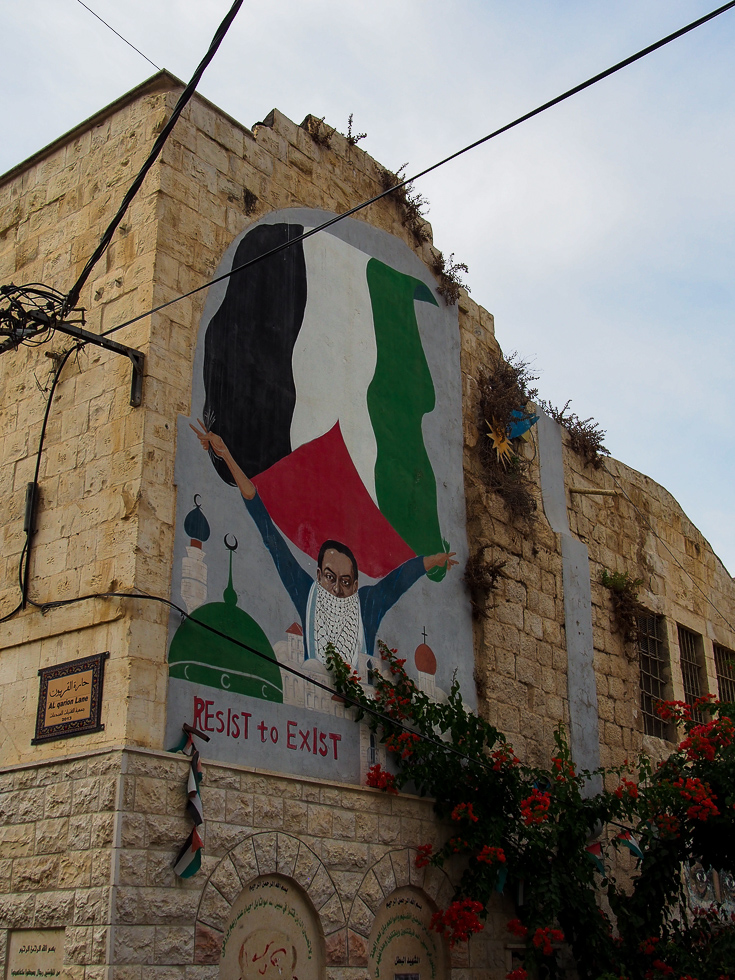 Street art seen in Nablus, Palestine (Image: In Locamotion)
Street art seen in Nablus, Palestine (Image: In Locamotion) By Alissa Murray
By Alissa Murray

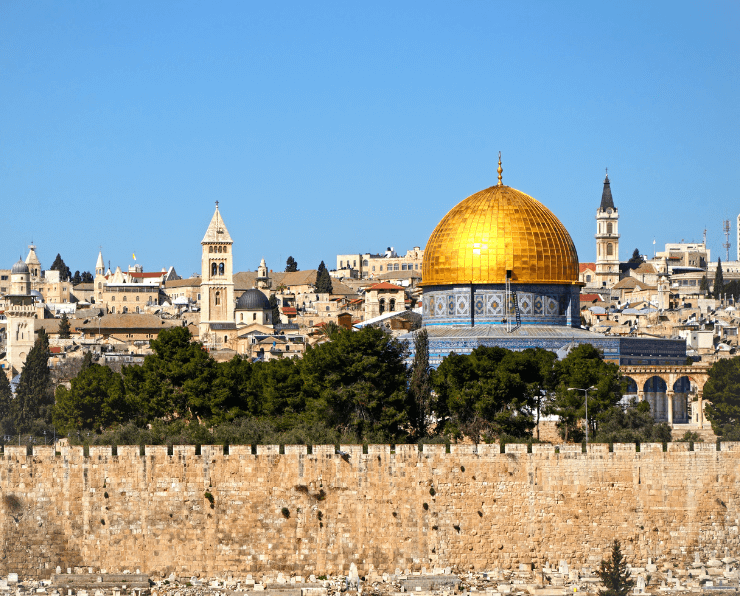
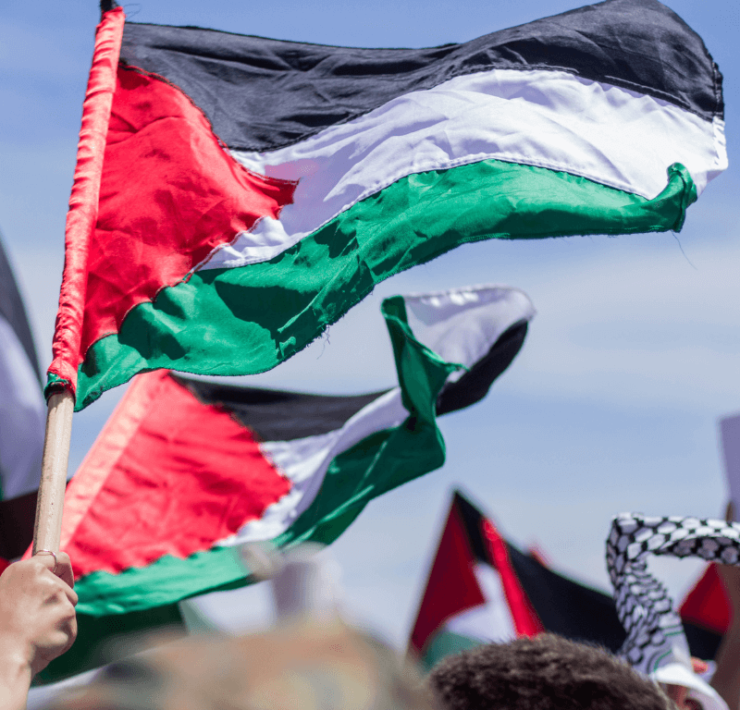

Great post 😁
Thank you very much! So glad you enjoyed it. 🙂
No problem! Keep posting and sharing!! Check out my blog when you get the chance 🙂
we need more articles like this. I was sad to see that even my friends whom I find informed and supportive of Palestinian cause didn’t dare to visit, missing on everything wonderful that you wrote about. hope things will improve in the future